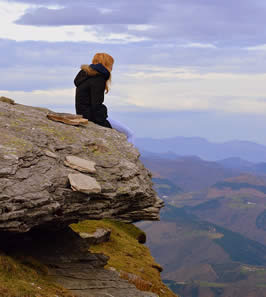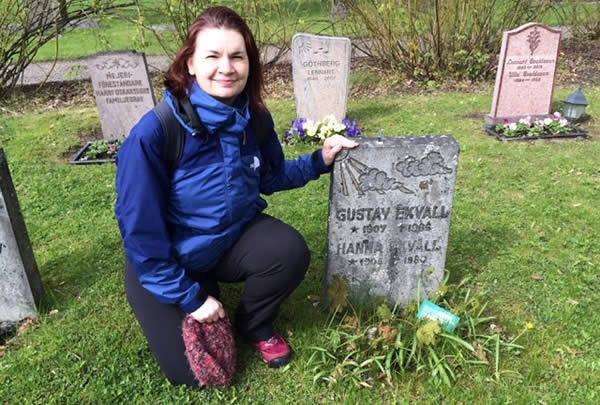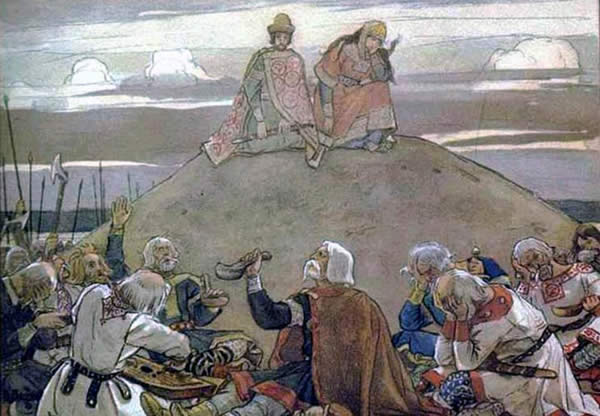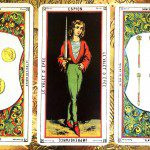
A couple of years ago, right around the time I dedicated myself to Freya, I had a variety of ongoing discussions with a friend about the nature of the Gods and what a modern polytheist theology could look like. My friend summed the approach that she felt was needed in creating this theology in a post on her blog, Magic from Scratch:
In my opinion, Theology answers questions. The first step, I think, is actually to figure out what questions we hear ourselves and other Polytheists asking. Some will be broad, some will be narrow. From there, we should look at who else answered the questions that we are now asking, and determine the method by which they arrived at those answers.
I will toss you one bit of advice from the oldest of the three major Abrahamic faiths.
Judaism has long believed that a single answer does not satisfy a theological question. The answer to a theological question is the dialogue between the various possible answers. That dialogue should not end. Different answers will work for different people and different times. Put one on the back-burner if you need to, but never throw it out. Let the contradiction sit, and be comfortable sitting with that contradiction. Also: don’t abandon your community because you have unique ideas, and don’t drive people out of your community just because their ideas aren’t the same as everyone else’s.
So, with that in mind, here are some of the questions that I need my theology to answer. As a hard Devotional Polytheist and a Heathen, my questions may be different than yours; but then again, there may be some overlap as well.
- How do the gods from all of the different pantheons–ancient and less ancient, European and Native American and Hindu and all of the others–get along? All of the deities I’ve interacted with on one level or another are busy with agendas of their own; it stands to reason that they would come into conflict with others at some point. How is that handled?
- What about syncretic deities? Do they have some kind of deific multiple-personality disorder, or are they entirely separate beings from the deities who had been merged together?
- Does a person’s beliefs actually affect where that person ends up after death? (This is where being a Heathen comes in handy; the Heathen understanding of what most Christians would call “the soul” was actually an extremely complex concept that was divided up into upwards of nine parts. )
- I’ve experienced deity (and ancestors and landspirits) as everything from a slight change in air pressure to intense, multi-sensory, transformative shamanic journeywork. Freya, for example, has presented Herself as to me at times as both small and mudane but then at other times as being so large that I could barely connect with Her or see where She ended. Which one is the “real” Her? Can we ever understand or experience the true extent of deity?
- Why do the Gods seem to pass their clergy around like trading cards? Sometimes it feels as if the Gods are playing a massive, ages-long game of baseball and they need to make sure they have the right amount of people with certain skills at any given time.

- If the Gods exist, then likely ancestors and nature spirits do as well. If so, what’s to stop divine, semi-divine, or supernatural entities from the various monotheisms from existing as well (saints, angels, demons, and everything in between)?
- Can new Gods be created? How?
- Why do the Gods need us?
- What are the specific details of the powers the various Gods and other powers actually have?
- And finally, as a new priestess, the one that was most pressing to my mind at the time: why should we modern humans bother worshiping ancient deities at all? Are people’s lives consistently made better off from having worked closely with any polytheistic deity, or is it all just self-aggrandizement?

Looking back on this list, I see that I’ve found answers for some of them that work for me. However, other questions have arisen in their place. Also, I find that I am focusing less on just the Gods and more on how my ancestor veneration and my connection to the landspirits fit into everything; the scope of my theology is widening, becoming more general and less caught up in specific details.

As Thenea points out, these questions will change over time. I like to think that this ability to grow and adapt is what will make any new theology strong enough to pass the test of time so that future generations of Polytheists will find them to be relevant and helpful for their own spiritual growth. Truly successful theology will only show itself by standing the test of time. Unfortunately, I won’t know for sure if I personally left anything of value to the next generation until after I’ve passed on. I admit I’d like to have some kind of legacy to be remembered by. A very Heathen perspective, no?
Cattle die, | and kinsmen die,
And so one dies one’s self;
But a noble name | will never die,
If good renown one gets. (Havamal, verse 77; Bellows translation)

Patheos Pagan on Facebook.

the Agora on Facebook
Happily Heathen is posted on alternate Fridays here at the Agora. Subscribe by RSS or e-mail!
Please use the links to the right to keep on top of activities here on the Agora as well as across the entire Patheos Pagan channel.

















